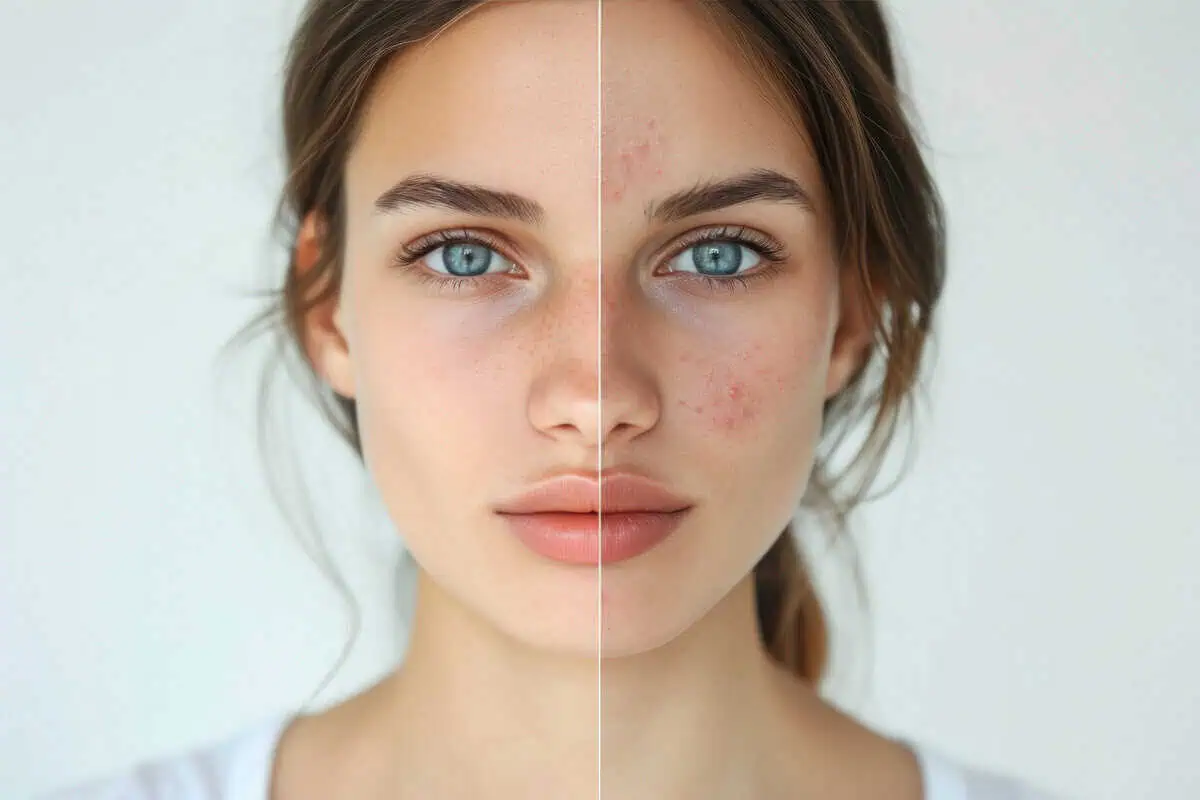Embarking on a medical weight loss journey is a commendable step towards a healthier you. It’s not just about shedding those extra pounds but adopting a lifestyle that can sustain your well-being in the long run. A critical part of this journey is making mindful food choices. Let’s dive into the world of good and bad foods, and explore some delicious meal ideas that can help you on your path to a healthier weight.

A key to success during your medical weight loss journey is eating the correct portions of nutritious food
The “Bad” Foods: What to Avoid and Why
When talking about “bad” foods, it’s not about demonizing certain foods entirely. Rather, it’s about understanding how certain foods can hinder your weight loss efforts and overall health. Here are some foods to be cautious about when planning your meals.
Sugary Snacks and Beverages
Examples: Candy, soda, sweetened coffee drinks, pastries.
Why They’re “Bad”: These foods and drinks are high in added sugars, which can spike your blood sugar levels and lead to increased fat storage. They offer little to no nutritional value and can leave you feeling hungry soon after consumption.
Refined Carbohydrates
Examples: White bread, pasta, pastries, many breakfast cereals.
Why They’re “Bad”: Refined carbs have been stripped of their fiber and nutrients, leading to quick digestion and blood sugar spikes. This can result in increased hunger and overeating.
Trans Fats and Processed Foods
Examples: Fried foods, margarine, store-bought baked goods, some microwavable meals.
Why They’re “Bad”: Trans fats can increase bad cholesterol levels and lower good cholesterol levels, leading to a higher risk of heart disease. Processed foods often contain high levels of sodium, unhealthy fats, and artificial additives.
High-Sodium Foods
Examples: Chips, processed meats, canned soups, frozen meals.
Why They’re “Bad”: Excessive sodium can lead to water retention and high blood pressure, which is detrimental to cardiovascular health.
Alcohol
Examples: Beer, wine, spirits.
Why It’s Bad: Alcohol is high in empty calories and can lower inhibitions, leading to poor food choices and overeating.
The “Good” Foods: Nutrient-Dense Choices for Weight Loss
On the flip side, focusing on nutrient-dense foods can fuel your body, keep you satisfied, and support your weight loss goals. Let’s look at some examples of good foods and why they are beneficial:
Vegetables
Examples: Artichoke, asparagus, broccoli, cabbage, carrots, cauliflower, cucumbers, eggplant, green beans, lettuce, mushrooms, onions, peppers, spinach, squash, zucchini, tomatoes.
Why They’re Good: Vegetables are low in calories but high in vitamins, minerals, and fiber. They help fill you up and provide essential nutrients for overall health.
Protein Sources
Examples: Chicken, cod, crab meat, flank steak, Greek yogurt, ground beef, mahi-mahi, round steak, scallops, sea bass, snapper, sirloin, turkey, eggs, egg whites, protein powder.
Why They’re Good: Protein is essential for muscle maintenance and can help keep you full. It also has a higher thermic effect, meaning your body burns more calories digesting it.
Complex Carbohydrates
Examples: Black beans, brown rice, corn, jasmine rice, kidney beans, low-carb tortilla, oatmeal, potatoes, sweet potatoes, quinoa, whole wheat bread, whole grain bread.
Why They’re Good: Complex carbs provide sustained energy and are rich in fiber, which aids in digestion and helps maintain stable blood sugar levels.
Fruits
Examples: Apples, apricots, banana, blueberries, cantaloupe, grapefruit, grapes, kiwi, mango, oranges, papaya, peaches, pears, plum, pineapple, raspberries, strawberries, watermelon.
Why They’re Good: Fruits are packed with vitamins, minerals, and antioxidants. They satisfy sweet cravings with natural sugars and provide fiber.
Healthy Fats
Examples: Avocado, almonds, cashews, flaxseed, walnuts, peanut butter, olive oil, coconut oil, sunflower oil.
Why They’re Good: Healthy fats are crucial for brain health, hormone production, and satiety. They help you feel full and can improve overall heart health.
A Few Inspiration Meals for a Balanced Day
Creating balanced meals that are satisfying and nutrient-dense is key to staying on track with your medical weight loss plan. Here are some meal ideas incorporating the good foods mentioned:
Breakfast
Meal: Greek Yogurt Parfait
- 4-6 ounces of Greek yogurt (protein)
- 1 cup of mixed berries (fruit)
- 1 tablespoon of flaxseeds (healthy fat)
- 1/4 cup of granola (complex carb)
Add additional flavor to this meal with a dash of cinnamon
Morning Snack
- 2 cups of mixed veggie sticks (carrots, cucumbers, bell peppers)
- 1/4 cup of hummus (protein and healthy fat)
Meal: Veggie Sticks with Hummus
Add flavor to this meal by garnishing your hummus with lemon juice and zest, dry spices and fresh herbs
Lunch
Meal: Grilled Chicken Salad
- 4-6 ounces of grilled chicken breast (protein)
- 2 cups of mixed greens (lettuce, spinach, tomatoes)
- 1/4 cup of black beans (complex carb)
- 1/4 avocado, sliced (healthy fat)
- Drizzle of olive oil and lemon juice (healthy fat and flavor)
Add additional flavor to this meal by adding a sprinkle of Tex-Mex seasoning to your chicken and/or beans while cooking them and garnishing your meal with additional dash of seasoning.
Afternoon Snack
Meal: Apple with Almond Butter
- 1 medium apple, sliced (fruit)
- 1 tablespoon of almond butter (healthy fat)
Add flavor to this meal with mixing in a dash of cinnamon to your almond butter
Dinner
Meal: Baked Salmon with Quinoa and Roasted Vegetables
- 4-6 ounces of baked salmon (protein)
- 1/2 cup of cooked quinoa (complex carb)
- 2 cups of roasted vegetables (broccoli, zucchini, peppers)
- 1 tablespoon of olive oil (healthy fat, used in roasting veggies)
Add flavor to this meal with seasoning your salmon and veggies with emon juice, fresh herbs and dry spices
Making Sustainable Choices
Incorporating delicious, good foods into every meal cannot only enhance your weight loss efforts but also improve your overall well-being. By focusing on nutrient-dense foods, you’ll feel more energized, satisfied, and less likely to experience those pesky hunger pangs that lead to unhealthy snacking.
Remember, the goal of your medical weight loss journey is not just to lose weight but to create sustainable lifestyle changes. By choosing foods that nourish your body and keeping a balanced diet, you’re setting yourself up for long-term success. Enjoy the process of discovering new recipes, experimenting with fresh ingredients, and feeling the positive changes in your body and mind.
Making mindful food choices for every meal will not only make you feel better but will also be key in assisting you in losing weight and maintaining your weight loss. Embrace these changes and celebrate your progress along the way. Here’s to a healthier, happier you!
Stay tuned to learn more from Serenity Wellness and Family Practice on what to expect from your medical weight loss journey and how to make the most of it.





